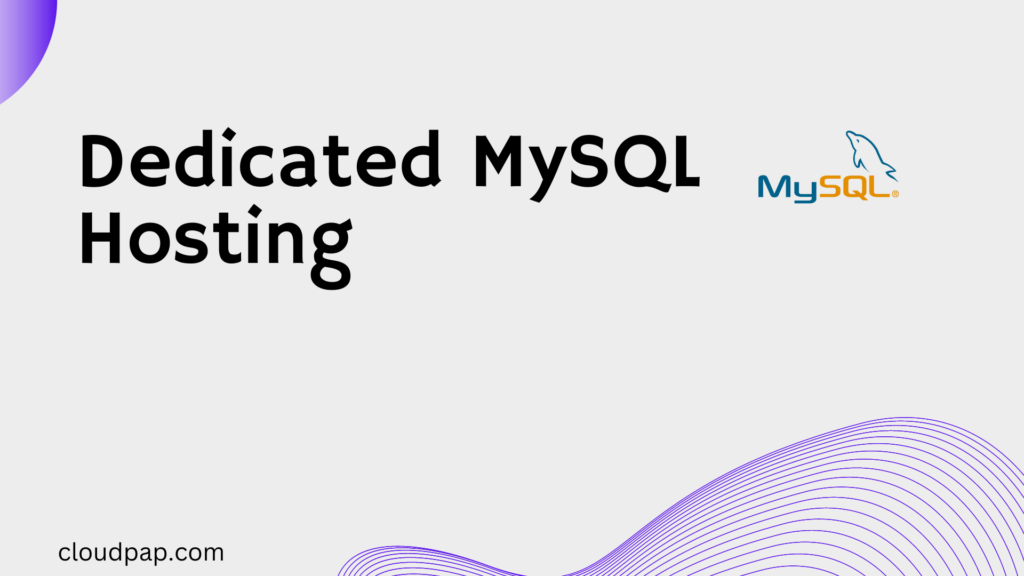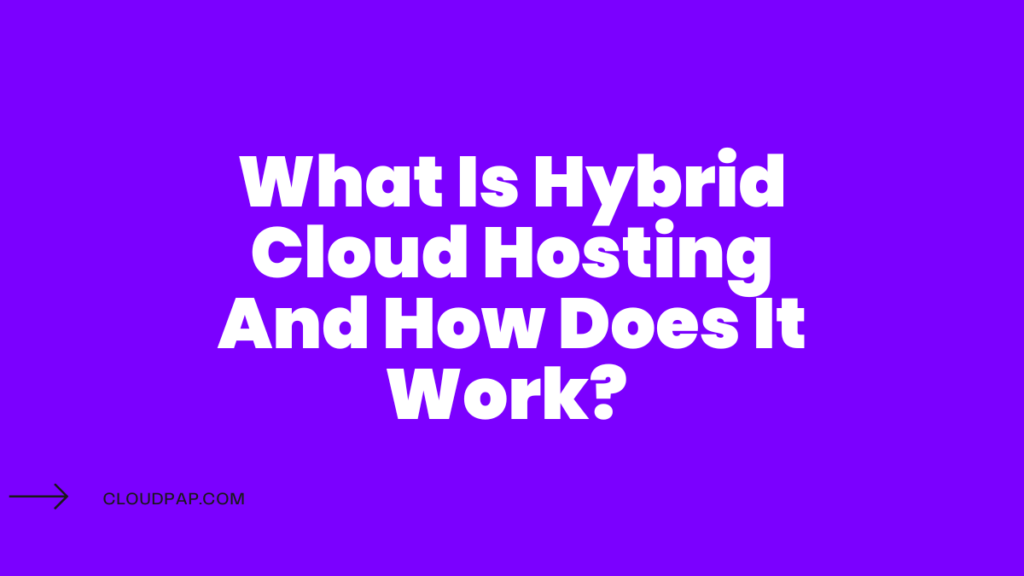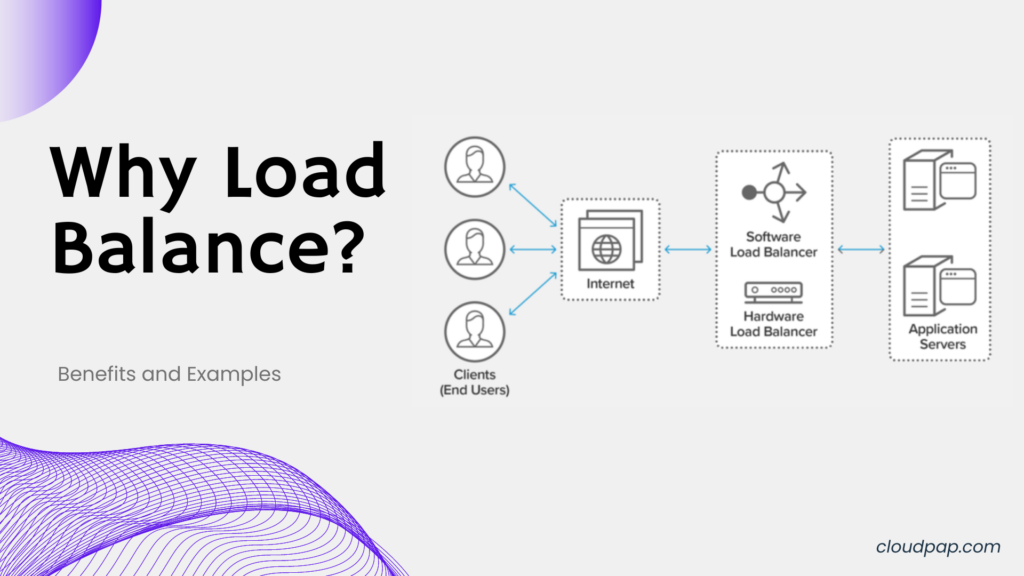In today’s digital age, businesses must decide between various hosting options.
Two popular choices are cloud hosting and shared hosting.
Each option has unique advantages and disadvantages, so it can be challenging for companies to determine the best fit for their needs.
This article will compare the two types of hosting to help readers understand the differences between cloud hosting and shared hosting and assess which one might be better suited for specific applications.
Cloud hosting
Cloud hosting is a premium plan in the market for web hosting, where websites are hosted on a set or cluster of servers.
This allows multiple servers and machines to work together as one unit, capitalizing on cloud computing facilities to create computing resources.
It offers scalability and flexibility, making it easy to increase or decrease resources as needed.
Cloud hosting is particularly beneficial for websites with high traffic due to its speed and flexibility, making it a preferred choice for web hosting.
Pros:
- Cost efficiency – Cloud hosting is generally more cost-effective than traditional forms of hosting as users only pay for the services they use.
- Scalability – Cloud hosting allows businesses to easily scale up or down depending on their resource needs, making it ideal for rapidly growing companies.
- Reliability – Cloud hosting providers offer high levels of reliability, with multiple data centers and redundancy capabilities to ensure your website remains available at all times.
- Security – Cloud hosting offers robust security measures to protect your data from malicious attacks and cybercrime.
- Flexibility – Cloud hosting allows businesses to access a range of services and applications tailored to meet their needs.
Cons:
- The cloud can be complex to set up and manage due to its distributed nature and the need for specialized skills from staff members managing it.
- Platform dependency – cloud vendor collaboration
- Limited Control to users in the use of services
Shared Hosting
Due to its low cost, shared hosting is a popular option in the web hosting market.
One server hosts multiple websites in this type of hosting, so all websites share the same resources like disk space, storage, and bandwidth.
This makes it cost-effective for websites with lower traffic, as the hosting provider handles all the technical tasks.
It is also easy to use.
However, the site loading time can be slow, as it is shared and unsuitable for heavy traffic.
Pros:
- Low cost: Shared hosting usually costs significantly less than other types of hosting.
- Easy to use: Shared hosting is user-friendly and easy to set up for those without technical expertise.
- Reliable uptime: Most shared hosting providers maintain reliable uptimes, making them a dependable web hosting solution.
- Support available: Many shared hosting companies provide customer support, allowing clients to get help with any technical issues they may have easily.
- Fast setup times: With shared hosting, customers can usually get their website live within minutes or hours of setting up their account.
Cons:
- Limited features: Shared hosting plans often come with fewer features than other types of hosting plans such as VPS or dedicated servers.
- Reduced control over server configuration: Clients have limited control over the server’s configuration when using shared hosting, as they share the same physical server with multiple customers simultaneously.
Difference between Cloud hosting and Shared hosting
| S.No. | CLOUD HOSTING | SHARED HOSTING |
|---|---|---|
| 01. | In cloud computing, a website is hosted on a group or array of servers, all of which cooperate in unison to act as one unit. | In shared hosting, one server hosts multiple websites. |
| 02. | Cloud hosting is one of the premium plan in the market for web hosting. | Shared hosting is one of the most common plan in the market for web hosting. |
| 03. | Cloud hosting is little bit costly. | Shared hosting is very less price. |
| 04. | It provides better performance than shared hosting as large number of servers are deployed. | Cloud hosting offers faster performance than shared hosting due to the larger number of servers deployed. |
| 05. | It is good for high traffic sites. | It is good for less traffic sites. |
| 06. | Cloud computing provides high scalability due to the availability of resources. | Shared hosting provides limited scalability as the resource is limited and shared. |
| 07. | In cloud computing, multiple servers provides a resource to website. | In shared hosting a single server provides resources to multiple websites in a shared manner. |
| 08. | In cloud hosting websites loads faster. | In shared hosting websites load slower. |
| 09. | It is more secure than shared hosting. | It is less secure than cloud hosting. |
| 10. | It is based on pay as you go model means pay per use. | It is not based on pay as you go model. |
| 11. | Cloud hosting offers greater reliability than shared hosting due to its high availability. | Shared hosting is less reliable than cloud hosting as it fails in high availability. |
| 12. | Cloud hosting packages offer better uptime as there is no single point of failure. | Shared hosting packages have a higher risk of server failure compared to cloud hosting, resulting in a lower server uptime. |
| 13. | It provides very good technical support as compared to shared hosting. | It provides very less technical support when compared to cloud hosting. |
Related:






